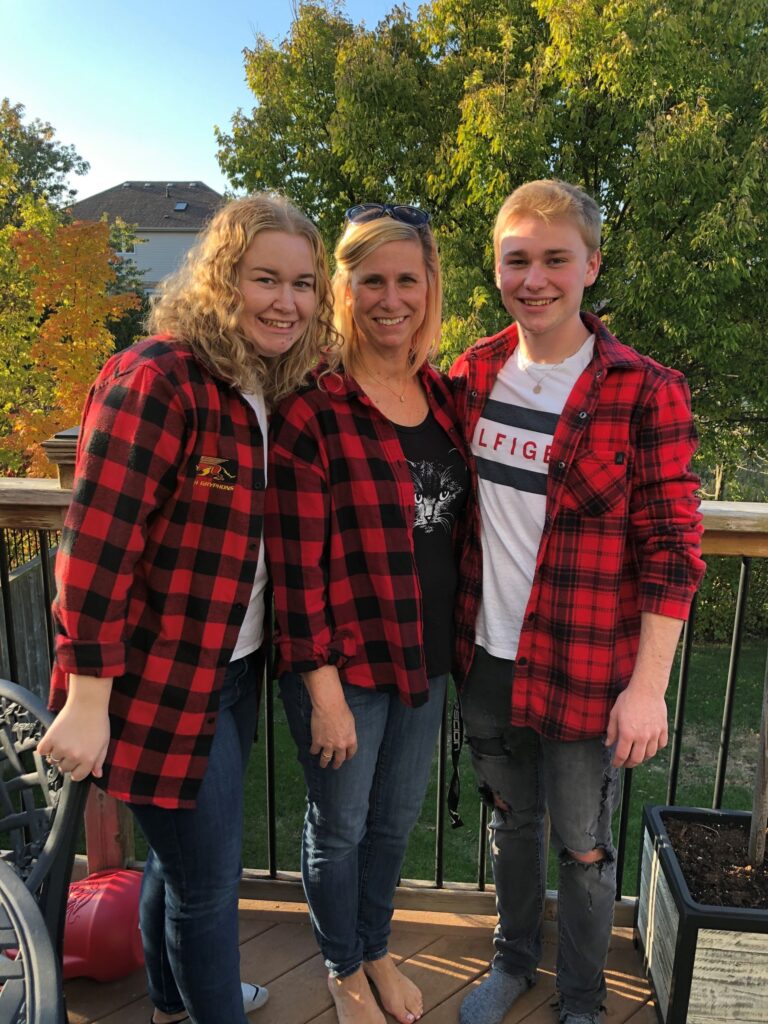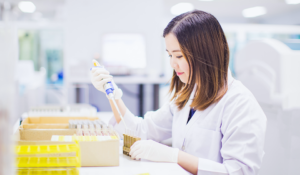When Nancy Tout pursued her passion for science with a PhD in Immunology, she didn’t realize just how much her work and personal life would intersect. Her son Alex was two years old when Nancy and her husband noticed his insatiable thirst and frequent urination. Though Nancy had studied autoimmune diseases and knew the signs and symptoms of type 1 diabetes (T1D), she didn’t suspect her son was living with the condition. But a trip to the doctor revealed his diagnosis, changing their lives forever.

“He was a toddler and therefore couldn’t articulate how he felt, so there was a lot of guesswork and calculation,” Nancy recalls. “I would weigh all his food and always had a calculator on hand to determine a safe range of carbs. I remember him looking up at us when we had to hold him steady to give him the needles. He was such a trooper.”
Shortly after Alex’s diagnosis, the Tout family reached out to JDRF. This was the start of a nearly 20-year volunteer relationship that has flourished thanks to the family’s incredible commitment to JDRF’s mission. This has included involvement in our Walk to Cure Diabetes, lobbying the government for device coverage, and supporting JDRF research.
“We jumped in with both feet and I think we’ve done probably every volunteer gig with JDRF,” Nancy says. “JDRF’s mission to treat, prevent and cure type 1 diabetes through research really resonated with me.”
“A cure just takes one breakthrough in the lab”
Now in his twenties, Alex is living provinces away and managing his diabetes thanks to advances in technology since his diagnosis – many made possible by JDRF-supported research and advocacy efforts, and by Nancy and her family.
When Nancy and her husband uprooted from Guelph and moved to Edmonton in 2019, she made one call right away. Within a month, she was touring Dr. James Shapiro’s lab, where he works tirelessly on stem cell research into a cure for T1D.
“A cure just takes one breakthrough in the lab,” Nancy says. “And to have Dr. Shapiro open his doors to me and show me the place where the Edmonton protocol was born was really nice.”
Nancy is most excited about JDRF’s beta cell replacement research, which she believes will lead to a cure in her son’s lifetime. Until that cure is found, she is happy to support research that improves lives today, like the artificial pancreas that greatly reduces the constant burden of checking blood sugar and dosing with insulin. Her son uses the world’s first hybrid closed-loop insulin delivery systems and this helps ease Nancy’s mind as Alex begins a new chapter with a demanding but rewarding career that includes shiftwork.
Her desire to affect change both now and in the future is why she gives to JDRF in several strategic ways. She donates annually to ongoing research initiatives, and she has also made a gift in her Will.
“When we sat down with our financial planner and were asked: ‘What are the most important things to you?’ JDRF was at the top of the list,” Nancy says. “JDRF has changed our lives forever and we want to ensure they can change others’ lives for years to come.”
Nancy believes that making a gift in her Will now as opposed to in her retirement years is a smart way to ensure that everything is taken care of well in advance. With her two children nearly finished their post-secondary education and financially independent, she felt it was time.
She also recognizes that others are not as fortunate as her family. Having in-depth knowledge of autoimmune diseases and access to good health care and technology helped her son navigate living with the disease and avoid the complications that can be all too common with T1D. Nancy and her family want nothing more than for T1D research to make life easier for everyone with T1D today – and lead to an eventual cure.
“Leaving this gift in our Will was a no-brainer for us. We hope that other families supported by JDRF consider the impact they can make by doing the same. The money is going to be well-spent, and that makes me proud and happy to be part of.”
To learn more, please fill out a request for information, or contact:
Leanne Scott
National Manager, Annual Giving
1.877.287.3533
plannedgiving@jdrf.ca
Charitable Number: 111897 6604 RR0001




